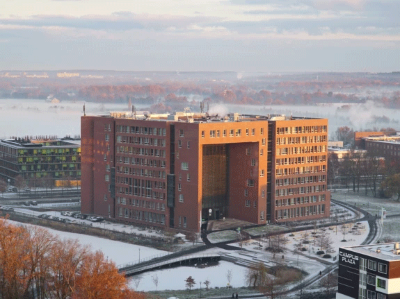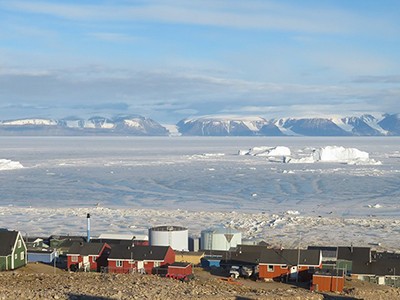Boulder, Colorado
A major Arctic-science conference got caught up this week in the fight between US President Donald Trump, who says the United States should take over Greenland, and Greenlandic and Danish leaders, who say it should not.

Trump team ‘survey’ sent to overseas researchers prompts foreign-interference fears
Greenland is an international research hub for many scientists, including climate researchers who fan out across the island’s ice sheet each summer, measuring how it is melting and contributing to rising sea levels around the world.
Ahead of a planned visit by US vice-president JD Vance to a US military base in Greenland this week, a major session on research in Greenland was withdrawn from the Arctic Science Summit Week in Boulder, Colorado.
Geopolitical tensions between the United States, where the meeting is being held, and Greenland were in the air. On 26 March, more than 50 attendees formed a circle outside the venue, holding signs showing the red-and-white flag of Greenland, which is an autonomous, self-governing territory of Denmark.
“We would like to show our support for our friends and colleagues back in Greenland, especially in these times when it’s very stressful,” says Kerim Hestnes Nisancioglu, a climate scientist at the University of Bergen in Norway, who helped to organize the show of solidarity.
Relationship tension
Trump has said that the United States will “have” Greenland either through a financial deal or by military force, pointing to the island’s valuable rare-earth minerals and its strategic location for national security and trade. This stance has upset scientific relationships between the two. “We’ve had very good relationships with Greenland, they’ve had a real interest in working with the US — and these offensive and inappropriate actions have been really destructive,” says a US scientist who has worked in Greenland for nearly two decades and who requested anonymity owing to fear of reprisal.

This Arctic town wants to make renewable energy work at the top of the world
A number of researchers from Greenland declined to speak with Nature at the conference, citing the political tensions.
In recent years, many international scientists who travel to Greenland to conduct research had worked to form a tighter, more ethical bond with the communities and institutions there. It used to be that researchers would arrive and conduct ‘parachute science’ without partnering with anyone local, says Aurora Roth, a graduate student at the Scripps Institution of Oceanography in La Jolla, California, who studies fjords in Greenland. Trump’s play for Greenland has undermined those improvements, she says. “Now you have the current geopolitics, and it makes me embarrassed to be a US researcher.”








